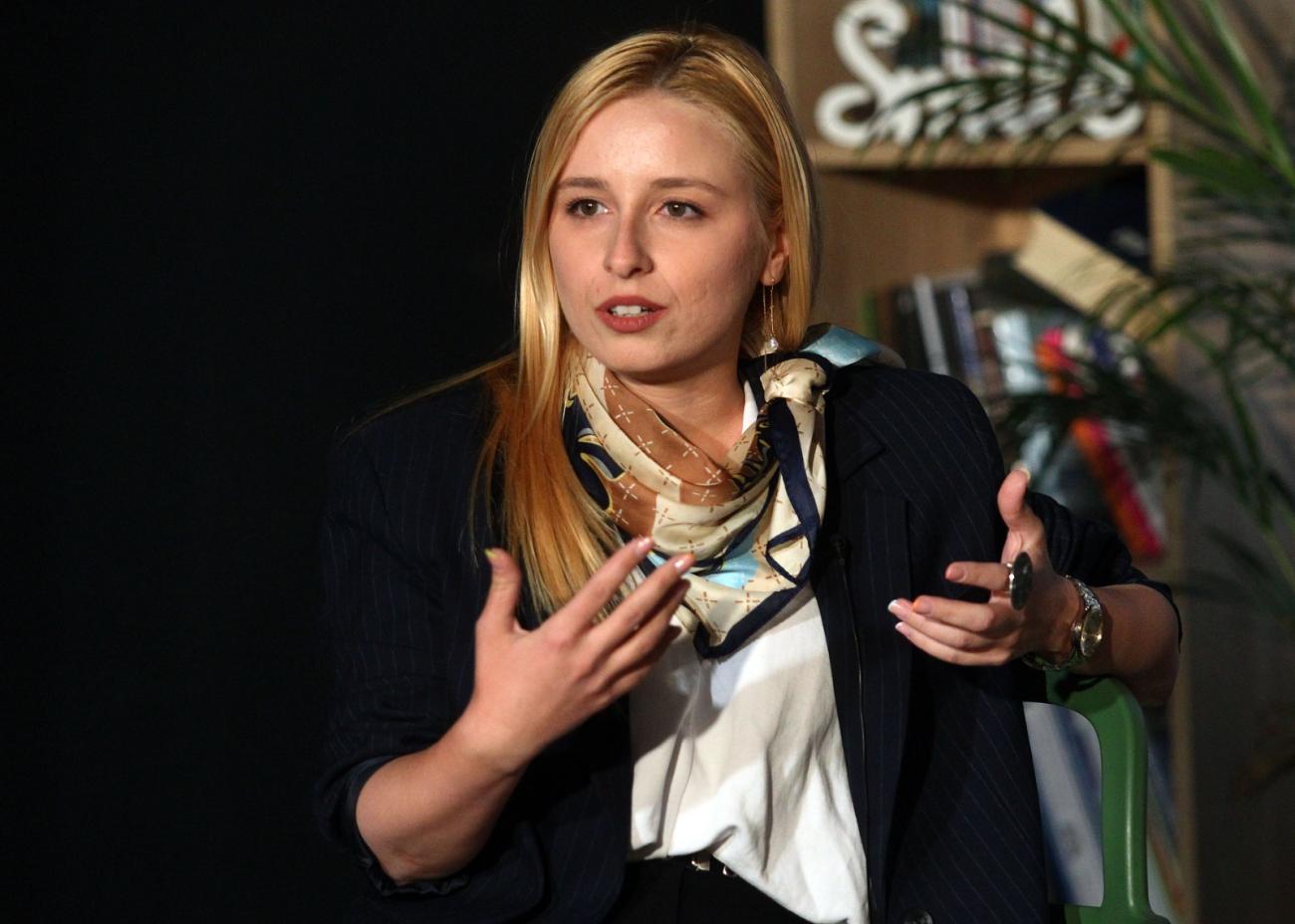In the words of Milica Borjanic: Advocating for equal participation of women in politics is our moral obligation

A youth rights advocate and programme manager at KOMS, Milica participated in UN Women's training on women's political leadership last year in Serbia.
"Doing politics means deciding on the socio-political context in which we will be living thus having a direct impact on the quality of our life. For this reason, it is very important that women play an active role in creating conditions for gender equality and opportunities for the development of conditions for a better and equal treatment of women.
More and more women are getting involved in political life albeit many of them, unfortunately, pro forma- for the sake of fulfilling a certain quota. We can prevent this kind of abuse of gender equality mechanisms by promoting and showcasing examples of women who fought for decision-making positions and paved the way for other women to follow in their footsteps.
However, when we look at the percentage of women in the total population, and then on the other hand, we look at the percentage of women present in institutions and in decision-making positions, we will understand that these two percentages are not only not equal, but that there is a drastic difference and much smaller number of women included in the decision-making processes.
The most common obstacles and challenges women in politics are facing include prejudices and stereotypes about women, their competences, and reasons for involvement in political life. If it is about younger women, experience and knowledge are the first to be questioned. On the other hand, balancing between political engagement and family obligations is the biggest challenge for women who have families and wish to be active in political arena. Even with great motivation and knowledge, it is extremely difficult for women to be politically active if they do not have great support from their partners, family, and the entire system.
Moreover, for women in politics, we often hear comments on their appearance. Social networks have brought a large amount of unsanctioned freedom to spread hate speech that is often directed at women, especially women who are vocal in expressing their views and active in political life. Not infrequently, hate speech that spreads on social networks can turn into a hate crime, which especially affects the safety of women. Hate crimes are regulated by Article 54a of the Criminal Code, while violence in the digital world has yet to be regulated. One of the possibilities would be the recognition of digital violence by the Criminal Code and the provision of certain sanctions for such behavior.
The corona virus pandemic has brought us some new perspectives on leadership and the role of political leaders. I would say that it also brought awareness to the necessity of including women and positioning women in places where certain decisions are made. However, the world of politics is still the most closed sphere for women. In some other areas, such as health and education, we have made more progress.
For all these reasons, advocating for the equal participation of women in politics is our moral obligation, but also a prerequisite for a prosperous future for all of us. An equal society is not possible without both women and men being equally involved in designing the future, development, and prosperity."



